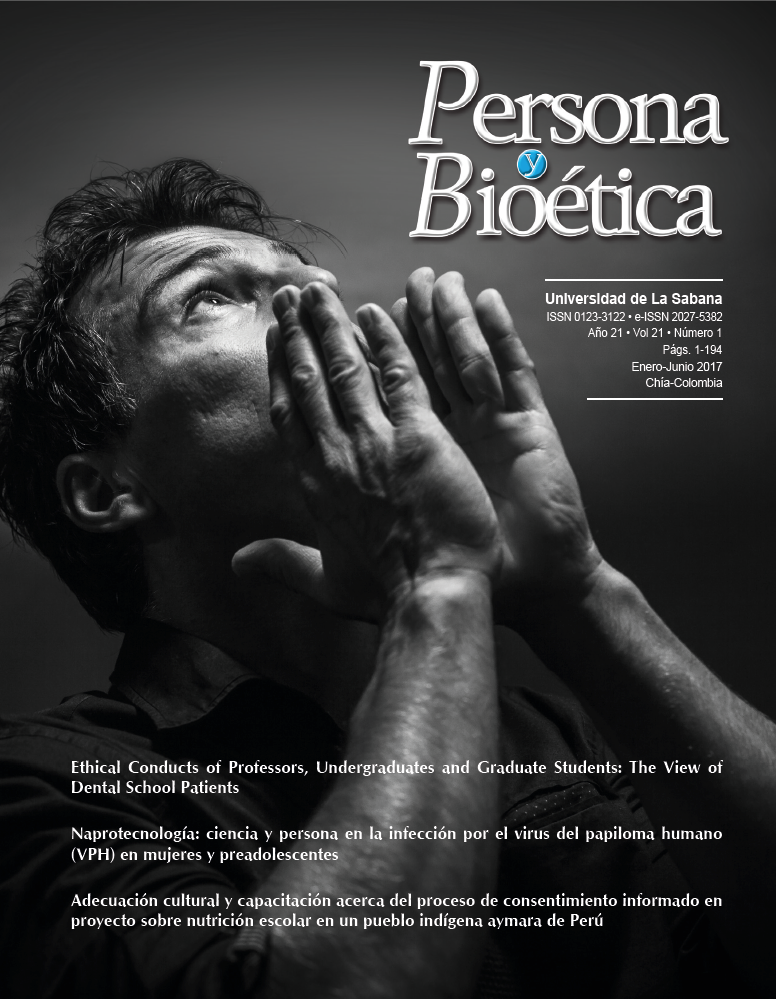Ethical conducts of professors, undergraduates and graduate students: the view of dental school patients
Keywords:
ethics, bioethics, dentistry, research, informed consentAbstract
Introduction: The importance attached to ethical practice and related informed consent varies among health professionals and is further influenced by working environments, level of knowledge, experience and societal values and beliefs. The objective of this study is to evaluate the ethical conduct of professors, undergraduates and graduate students through questionnaires answered by patients. Methods: One hundred twenty (120) patients at the dental clinics of three different dental schools in São Paulo State were interviewed based on objective and discursive questions about signed informed consent, participation in scientific research, photographs during treatment, requested saliva samples, tooth donation requests, and information about tooth destination after removal. A frequency distribution (absolute and percentage values) was used for a statistical analysis of the data. Results: In all, 65.8% of the patients had given signed informed consent for treatment and 12.5% had not done so; 10.8% did not know if they had participated in scientific research; 54.2% were photographed during dental procedures and 47.1% of them had signed an authorization form; 6.6% were requested to provide a saliva sample and 66.6% of them had signed an authorization form to that effect; 16.1% had a tooth donation requested and 64.4% of them had signed an authorization form to that effect; and 61.3% did not know the destination of the tooth after removal, when donation was not requested. Conclusions: The majority of the patients had signed an informed consent form for treatment, photographs, saliva samples and tooth donation. This demonstrated ethical conduct towards patients on the part of professors, undergraduates and graduate students.
Downloads
Downloads
Published
How to Cite
Issue
Section
License
Authors who publish with this journal agree to the following terms:
This journal and its papers are published with the Creative Commons License Attribution-NonCommercial-NoDerivatives 4.0 International (CC BY-NC-ND 4.0). You are free to share copy and redistribute the material in any medium or format if you: give appropriate credit, provide a link to the license, and indicate if changes were made; don’t use our material for commercial purposes; don’t remix, transform, or build upon the material.





